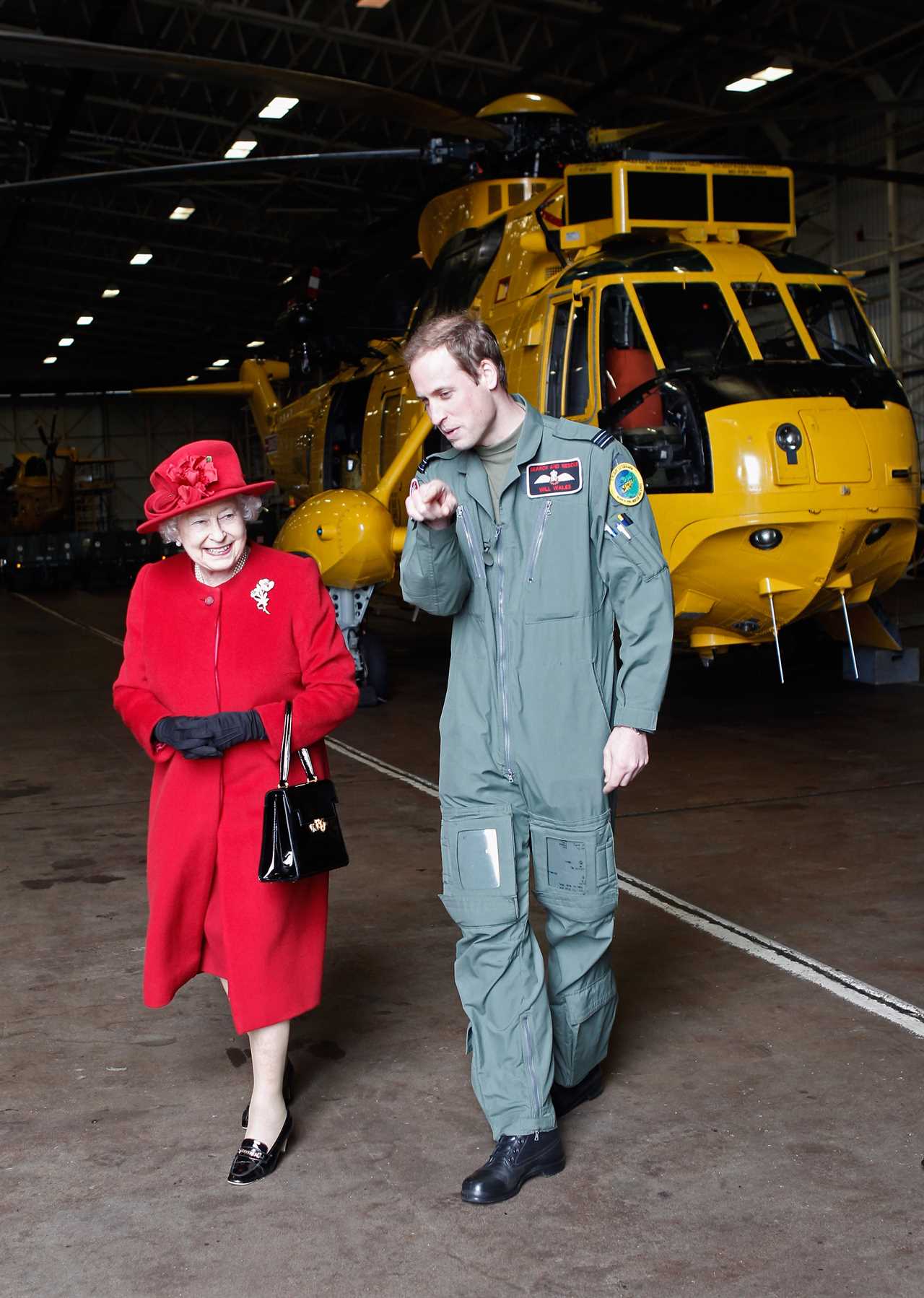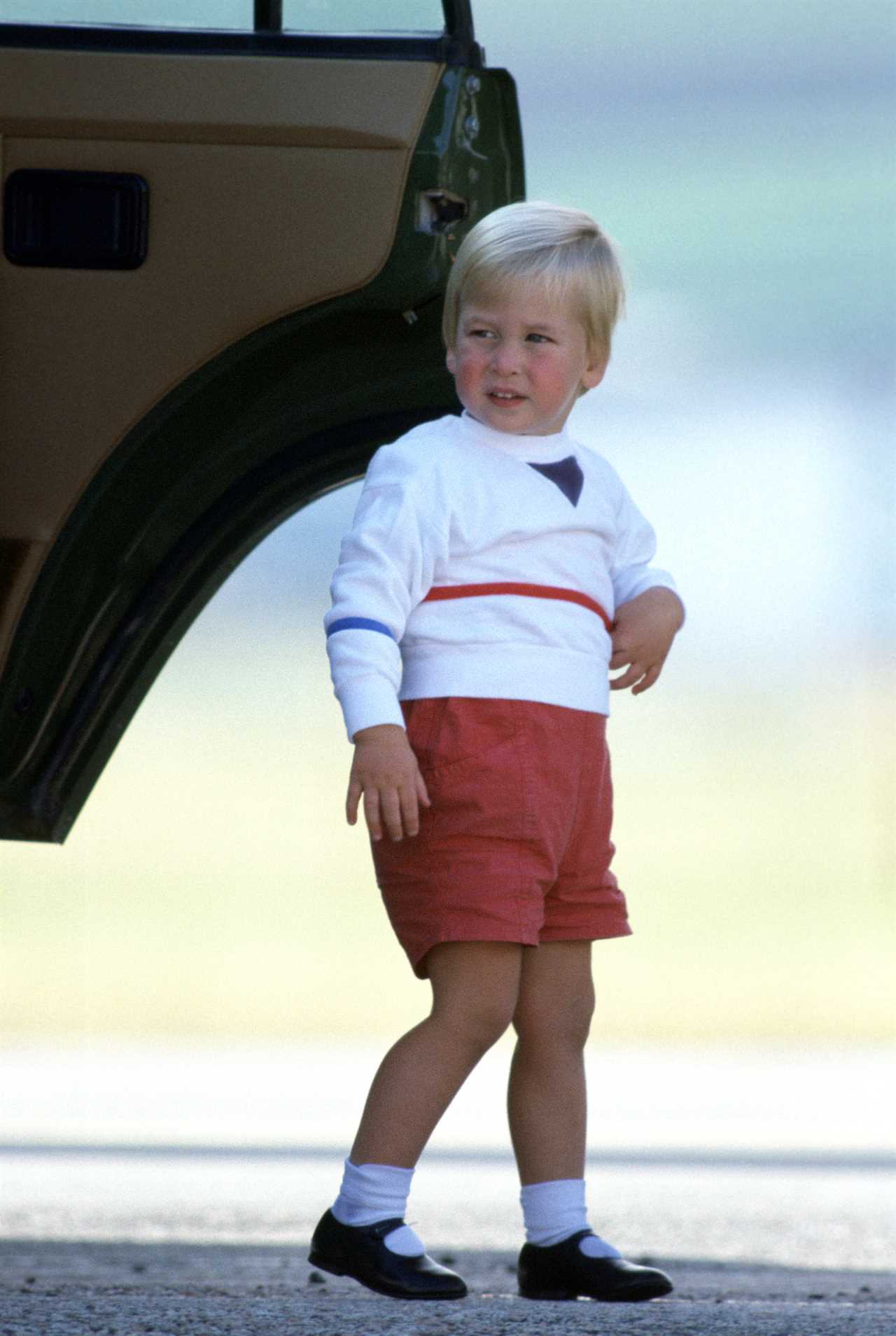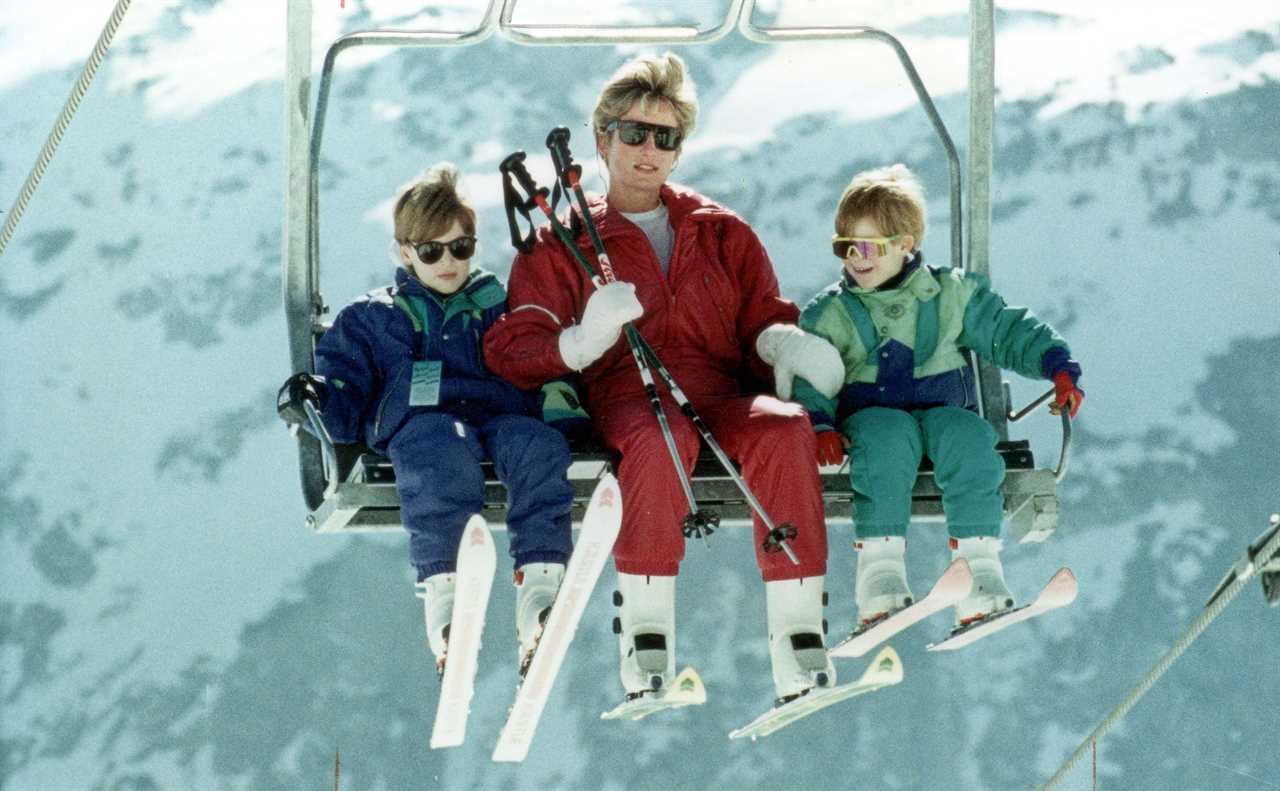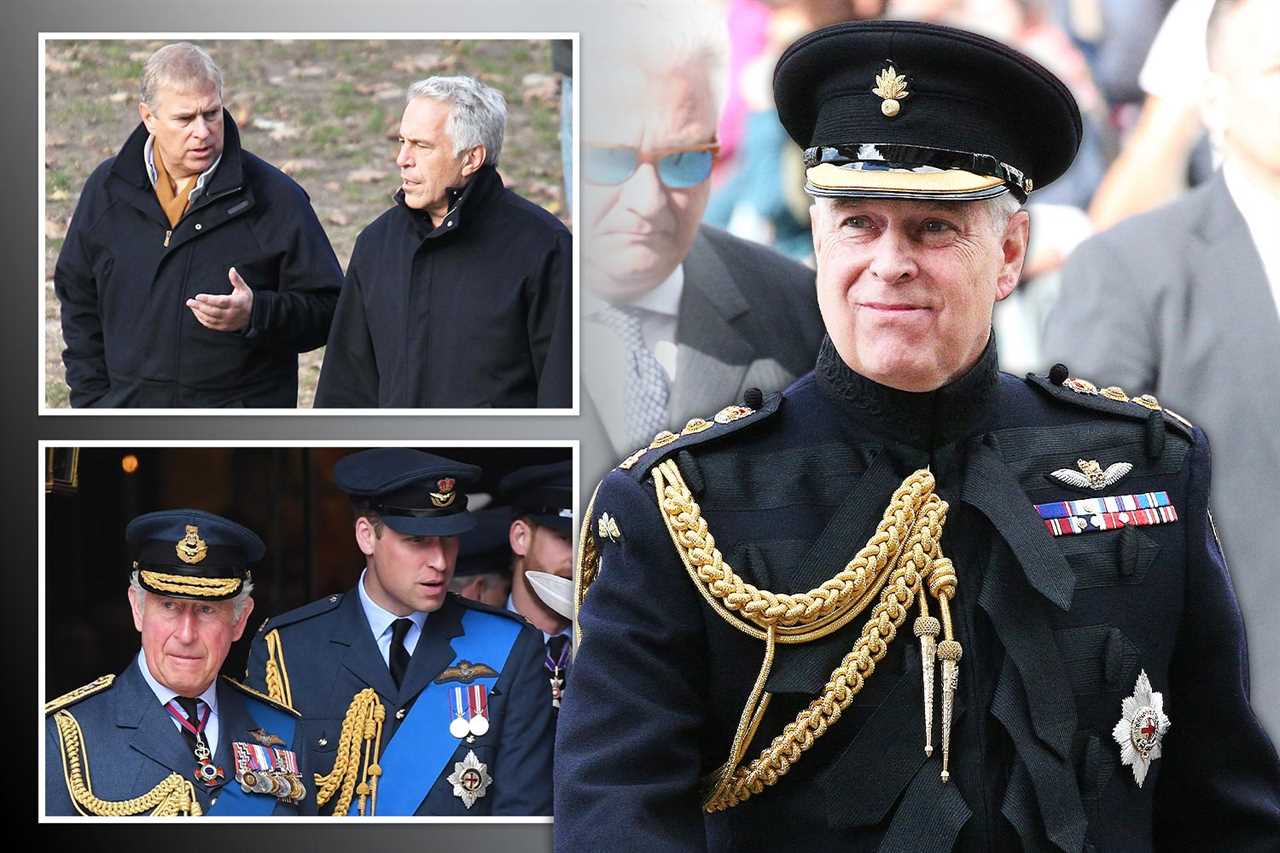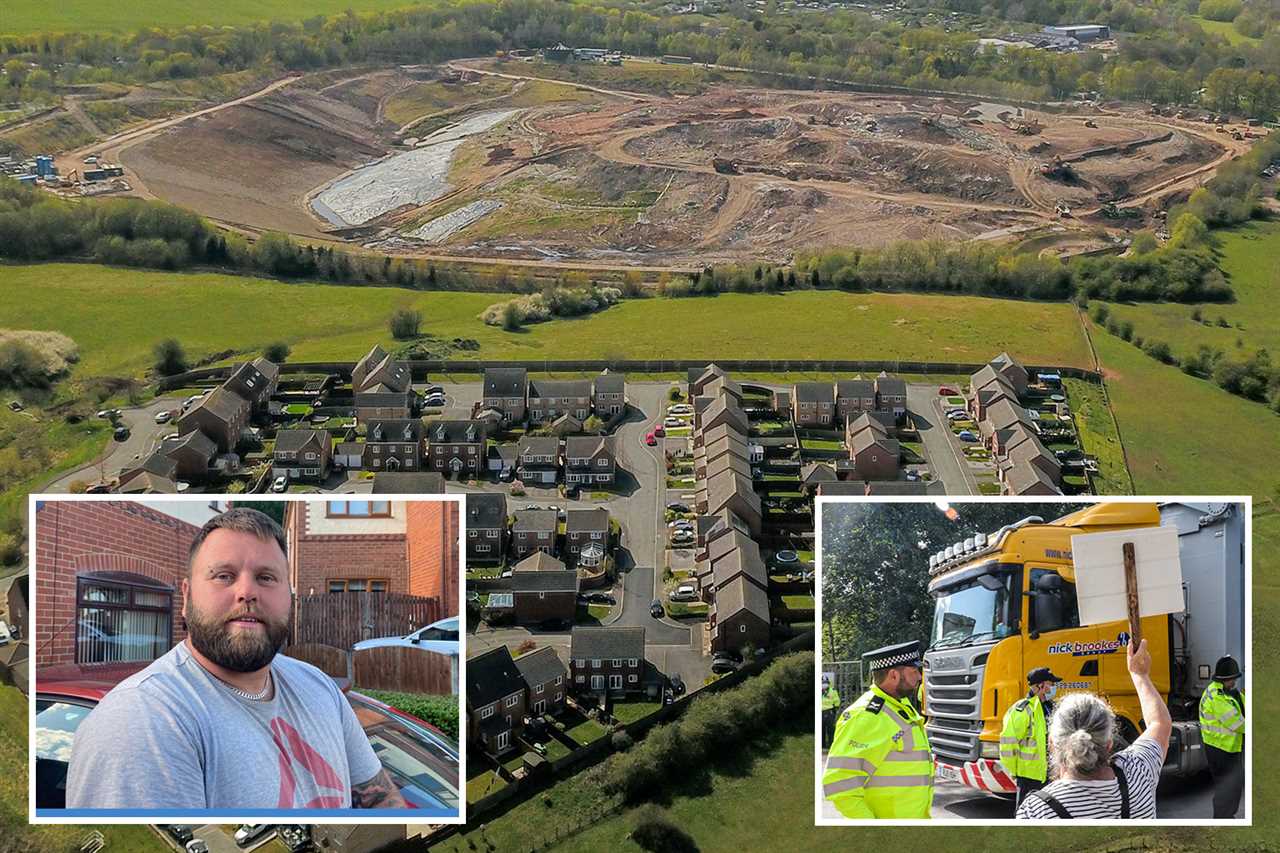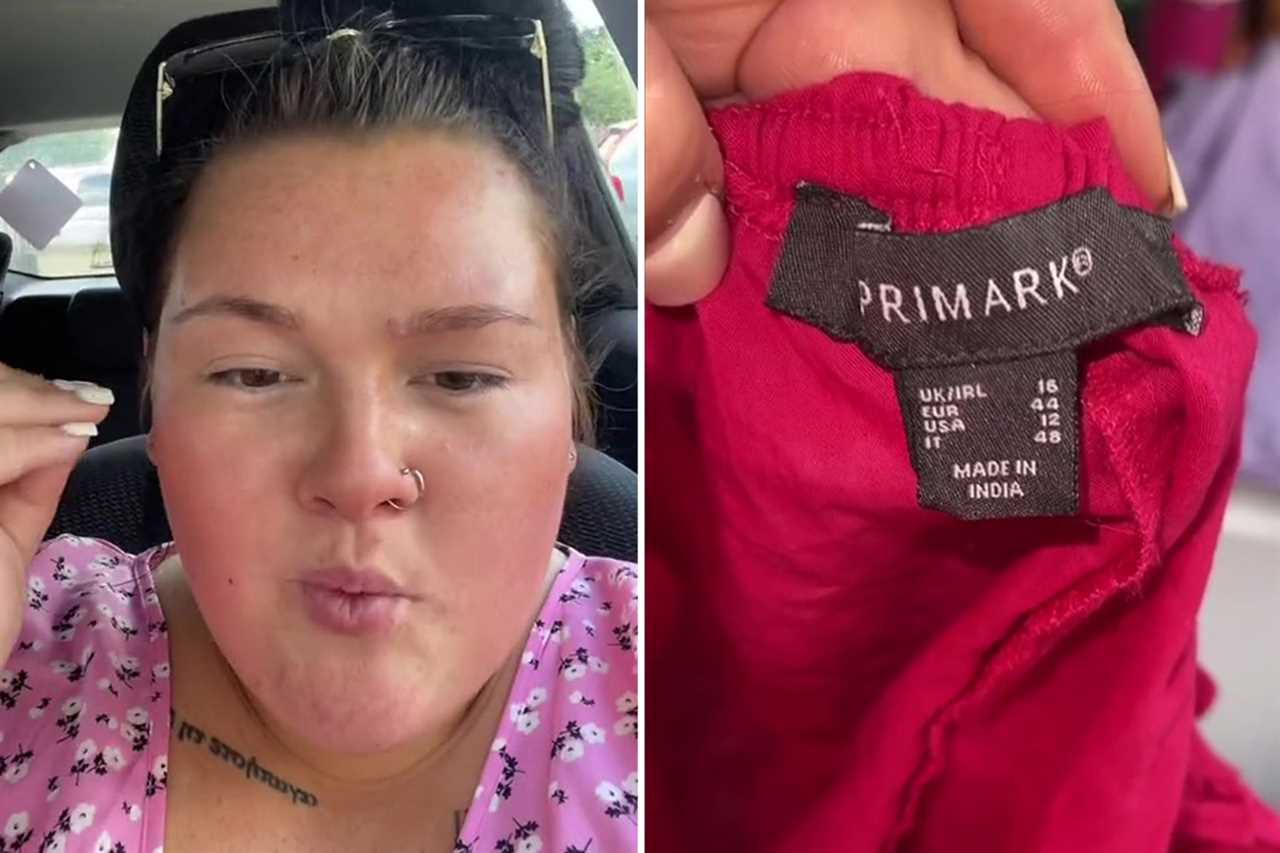Prince William is not a man who stands on ceremony. In a terrible storm during the royal tour to Pakistan two years ago, his plane was hit by lightning and dropped several hundred feet to screams of terror.
His first thought was for Kate, his staff and the crew, before he spoke to the pilot.
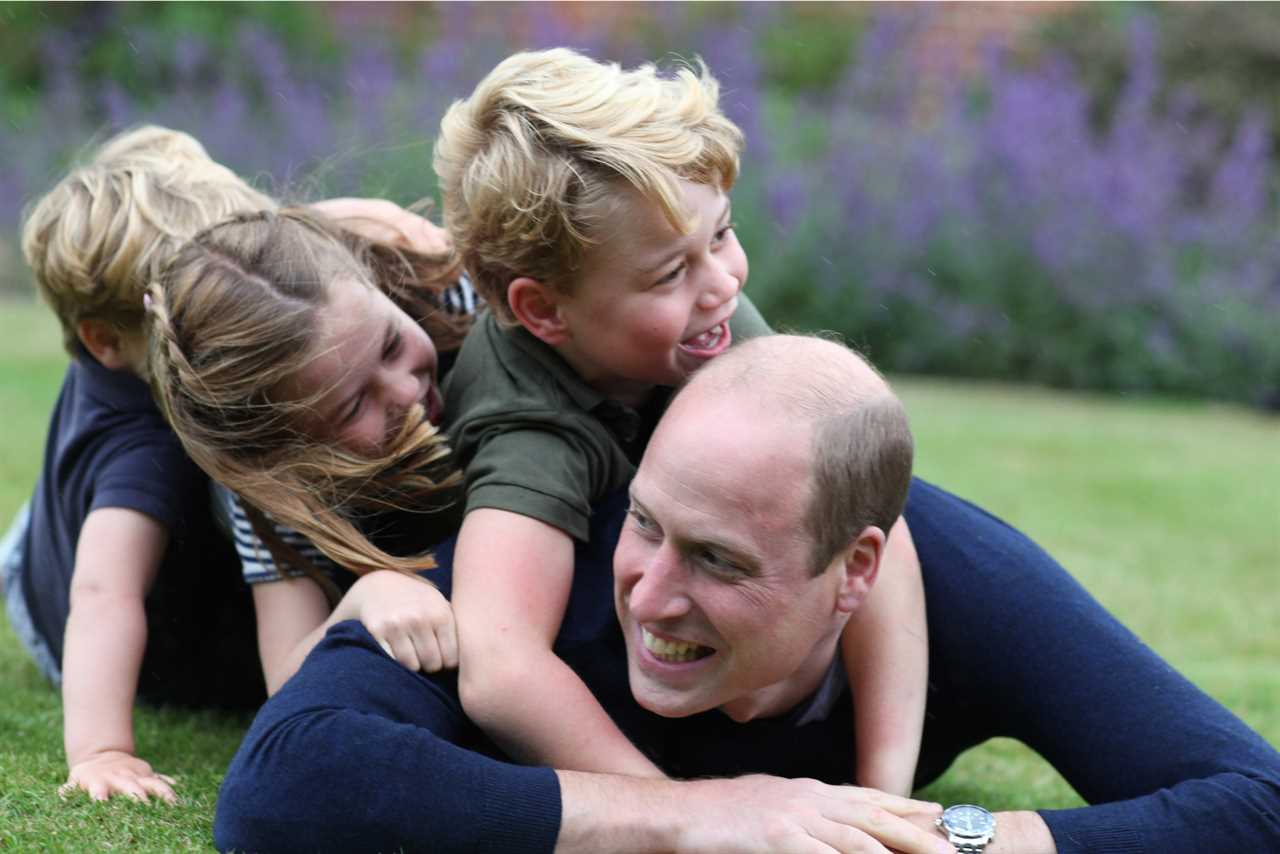
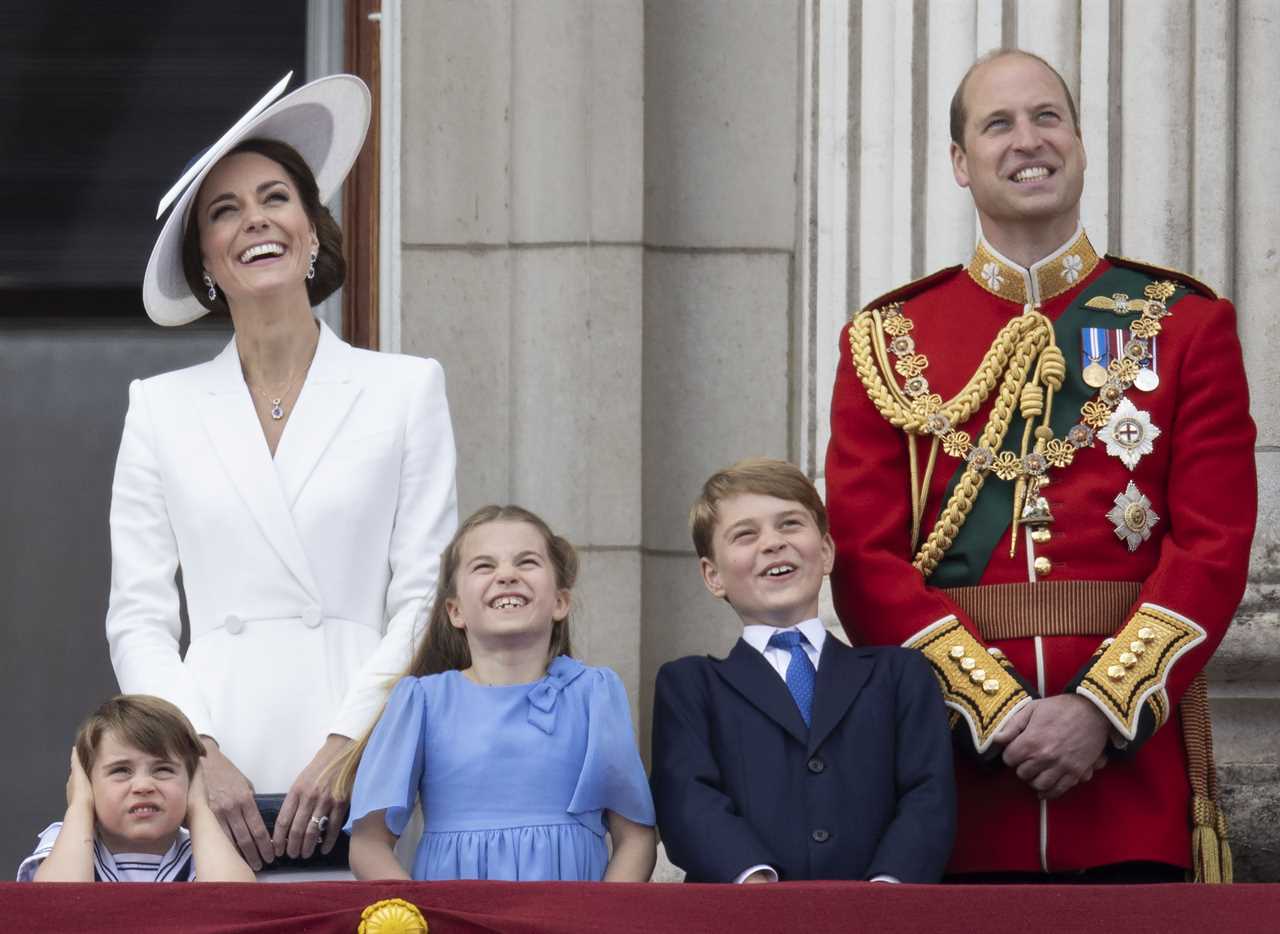
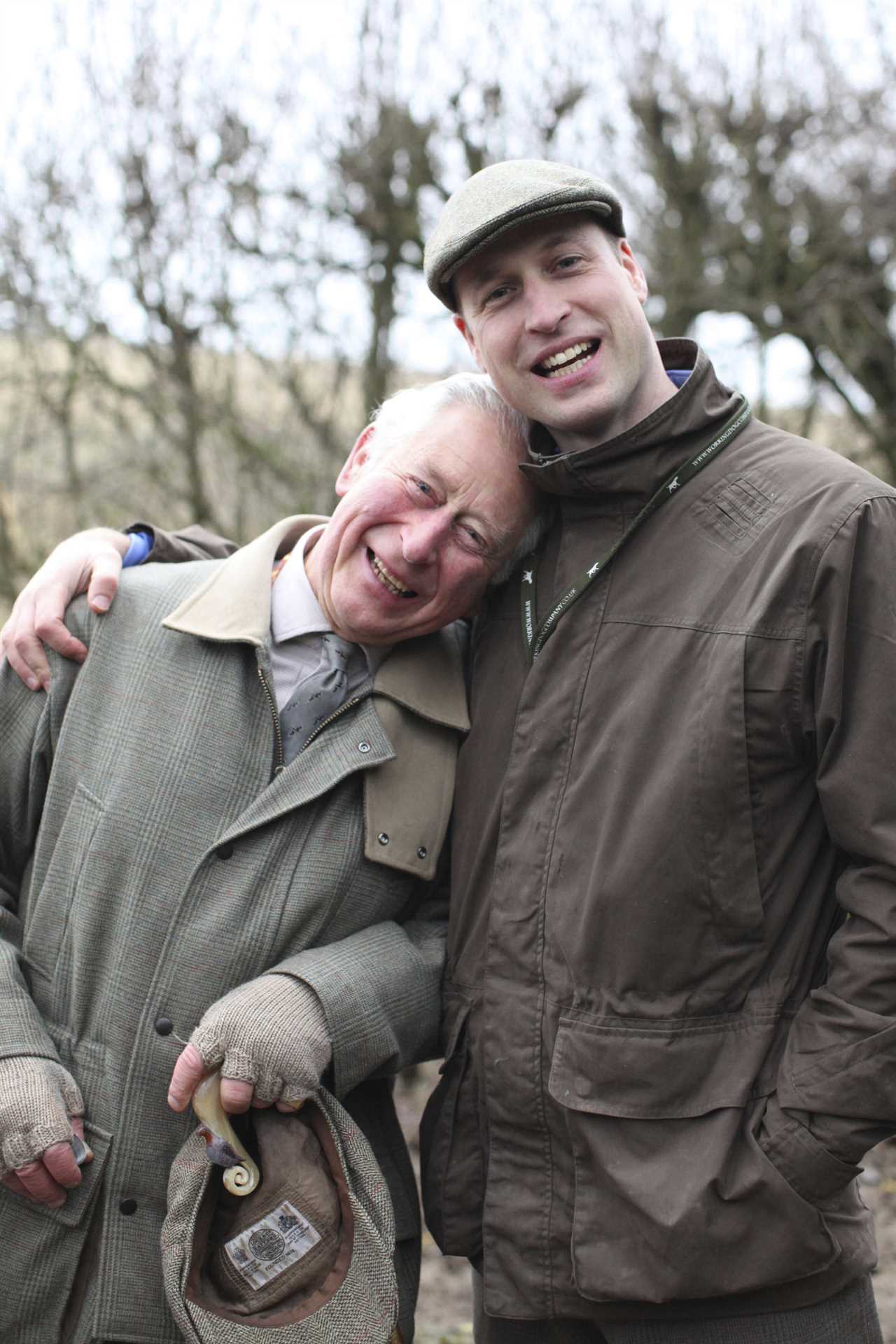
Then he came to the back of the plane and joked to the travelling press: “Just wanted to check you were all OK. It was me flying the plane! That’s why it’s so bumpy and turbulent.”
Up close and personal, Prince William is as charming and courteous as you’d expect from a future king. (He’s also sexier in real life than you might think.) But his 40th birthday on Tuesday is a significant milestone.
The past decade has been the most formative of his life, as he evolved from newlywed heart-throb to king-in-waiting. Now, closer to the throne than ever before, the future of the monarchy rests on his and Kate’s shoulders.
For a long time he resisted the call, as he wasn’t ready for full-time royal duties. Instead he served as a pilot in the RAF’s Search and Rescue Force (SARF) and then as a pilot for the East Anglia Air Ambulance.
Read more on Prince William
But now, as a proud father to George, eight, Charlotte, seven, and four-year-old Louis, as well as being an environmental campaigner who is increasingly confident on the world stage, he is at one with his destiny.
He has taken his time to identify the charities he wants to support, the difference he wants to make and, when the time comes, the type of modernising king he will be.
As he said himself: “When I settle on something, I want to dig deep, I want to understand what I am involved in, I want to understand the complexities of all the issues and, above all, I want to make an impact.”
His has been a long journey to get to this point. Wind back the clock 25 years and no one will ever forget the sight of a floppy-haired teenage William walking behind his mother Princess Diana’s coffin.
He was 15 when she died in August 1997 and this year will be the 25th anniversary. That he still misses his mum is clear.
He and Harry were determined to reclaim the memory of their mother as they got older, both in terms of a statue unveiled last year in Kensington Palace’s sunken garden, and in protecting her image.
In a public statement after Lord Dyson’s report last year, his anger and disgust at “the deceitful way” his mother’s infamous Panorama interview had been obtained by Martin Bashir and the BBC was palpable.
“BBC employees lied and used fake documents to obtain the interview with my mother [and] made lurid and false claims about the royal family which played on her fears and fuelled paranoia,” he said.
“The interview was a major contribution to making my parents’ relationship worse and has since hurt countless others.
“It brings indescribable sadness to know that the BBC’s failures contributed significantly to her fear, paranoia and isolation that I remember from those final years with her.”
Yet in a documentary broadcast on ITV in 2017, he remembered his mother as: “Very informal and [she] really enjoyed the laughter and the fun.” She could be “sort of the joker”, he added, and “loved the rudest cards you could imagine”.
He said: “I would be at [boarding] school and I’d get a card from my mother. Usually she found something, you know, very embarrassing, you know, a very funny card, and then sort of wrote very nice stuff inside. But I dared not open it in case the teachers or anyone else in the class had seen it.”
He also talked about the “very funny memory” of coming home from school to find his mother had invited supermodels Cindy Crawford, Christy Turlington and Naomi Campbell to their home in Kensington Palace.
“I was probably a 12- or 13-year-old boy who had posters of them on his wall,” he told the documentary Diana, Our Mother: Her Life And Legacy. “I went bright red and didn’t know quite what to say, and sort of fumbled and I think pretty much fell down the stairs on the way up. I was completely and utterly awe-struck.”
To keep her memory alive he often talks of “Granny Diana” with his children.
In a Mother’s Day card for her last year, little Charlotte wrote: “Granny Diana, I love you very much. Papa is missing you.”
But the trauma he suffered losing her so young, and in such awful circumstances, has shaped William and partly explains his passion for improving mental health and getting people talking about their emotions – not least because, in life and death, his mother changed the way we express them.
He has always railed against being a “ribbon-cutting royal”, and the issues he champions – homelessness, racism in football, male suicide and his ambitious eco-warrior project Earthshot – are a window into where the future King William V will take the house of Windsor.
But it is his marriage to Kate, who also turned 40 earlier this year, that has grounded him.
A friend says: “His marriage to Catherine has been crucial. She loves him for who he is, in spite of his title, not because of it. She is his anchor and he relies on her calmness and her counsel. She is tougher than she is often given credit for, and William relies on her hugely.”
The pair are planning a joint party to celebrate them both hitting the big 4-0 milestone.
Of course, the role that has really been the making of him is fatherhood. William’s childhood was famously fractured – with a workaholic father who he saw infrequently, corrosive fighting between his warring parents and, ultimately, the loss of his mother.
So it is little surprise that the Duke of Cambridge puts the happiness of his children above everything.
Royal engagements, even that royal tour to Pakistan, have been arranged around the school run and the children’s bedtimes. In fact, the plane taking them out to Islamabad was delayed so that Kate and William could drive George and Charlotte to school. William makes every effort to pick them up or drop Louis at nursery.
Their upcoming move to Windsor is so that the children can experience the kind of idyllic rural childhood that Kate enjoyed in Berkshire, with plenty of green space.
He and Kate retreated to Anmer Hall, their grand country house in Norfolk, after George was born in 2013, as the plan was to try to have as “normal” a married life as possible, away from the full-time glare of the royal spotlight.
William wanted a proper family life with the privacy and consistency for his children that he had never known, while slowly increasing his public duties.
Even when the Cambridges moved back to London for George to start school in 2017, most weekends and holidays were spent at Anmer Hall, which they regard as their true family home.
William embraces being outdoors with the children, whether horse riding or bug finding – even in the rain. Pitching tents, camping outside, growing tomatoes and peas from seeds and watching their sunflowers develop is what the Cambridge family love to do.
Lazy afternoons can be spent at sea, in a small boat that they enjoy taking out in the calm waters off the Norfolk coast, or at a beach hut on a local stretch of golden sand where they can run up and down with their black cocker spaniel Orla.
The couple have become more relaxed with allowing access to images of their children, partly because it is the Duchess of Cambridge who takes the charming portraits that are released for birthdays or the delightful images shared for Father’s Day in 2020.
And William’s been easing George into his future role. Last year, he went to Wembley in an official capacity to watch England play in the Euros, alongside his mum and dad, who’s the FA’s president.
After becoming a full-time working royal in 2017, the Duke of Cambridge has also stepped up as a key decision-maker in the royal family.
The last couple of years have been difficult, to put it mildly, for the Firm. An ageing monarch, the death of a beloved grandfather and patriarch in Prince Philip, Prince Andrew’s sex scandal and the Sussexes’ departure to the US have all created problems.
After Prince Andrew’s disastrous Newsnight interview in late 2019, William and Charles worked in “lockstep” to persuade the Queen that her favourite son had to step back from royal duties and that he would not be able to return to public life.
Charles and William have not always been close, but recent events have brought them back together.
As an aide stressed: “They are both very much on the same page. William is the next Prince of Wales and he has been learning from his father, becoming very involved in the work of the Duchy of Cornwall and taking on ever greater responsibility. They talk a lot more, and of course there is great sadness over the Harry situation.”
It’s not easy working with your family, and it’s certainly not easy working with your only brother. Harry and William were once closer than close, brothers-in-arms (quite literally when they both served in the Blues and Royals) and next-door neighbours at Kensington Palace.
But the royal hierarchy was always there – William was in charge of their household, the senior brother, the one who would be king.
The older brother always came first.
William and Harry fell out when the elder brother tried to offer fraternal words of advice about “taking his time” in his relationship with Meghan Markle. But both Harry and Meghan struggled under the controls the hierarchy imposed.
Plus, William does have a temper and can be quick to rouse. He was initially furious at Harry and Meghan publicising their wish to reshape their roles without telling the rest of the family, which he viewed as totally disrespecting the Queen.
And after they left the UK, the relationship reached a nadir when they did their tell-all with Oprah last March. Flinging brickbats of racism, neglect and being driven to suicidal thoughts at the royal family were only topped by Harry saying Charles and William were “trapped” in their roles.
Through clenched teeth, William was forced to defend a family that traditionally never explains, never complains, with a terse: “We’re very much not a racist family,” when yelled at by a TV reporter.
Extreme sadness has now replaced the anger – the brothers’ relationship is still not great and they talk very little.
The Sussexes’ visit during the Queen’s Platinum Jubilee earlier this month seemingly did little to repair what has become a very fractured relationship. Harry and William were not thought to have spent any private time together, nor their families, during the four-day celebration.
But a friend said: “William is adamant that this relationship will be repaired. He still loves his brother very much. They will get through this and time is a great healer.”
William has always been his own man. Recently, he has increased his “work” visits to his grandmother. The two have always had a good bond, ever since his weekly visits to Windsor Castle for tea every Sunday while a pupil at Eton College.
Now he pops in after he’s conducted an investiture or after constitutional events, such as the State Opening of Parliament, which he attended for the first time last month.
Learning the ropes from the Queen is important in his mind, but he will still do things his way.
Once he takes on a project or a charity, he wants his help and impact to last. So he and Kate have taken on fewer patronages than the Queen or Charles in order to really focus their time and effort.
Their Royal Foundation focuses on mental health issues, the environment and in the Duchess’ case, children. One of the Duke’s first charity patronages was the cutting-edge cancer hospital The Royal Marsden – the presidency of which his mother had also once held.
He frequently visits, both publicly and in private, and last month his dual royal and charitable roles combined when he conferred the honour of damehood on inspirational “Bowel Babe” and Sun columnist Deborah James in her parents’ back garden.
The event was typically William – very low-key, partly because Dame Deborah was in the last stages of incurable bowel cancer, but also because his sense of humour and informality put her family completely at ease as they sat together in the beautiful garden, sipping champagne and enjoying afternoon tea.
It’s clear he has inherited his mother’s charm and his father’s work ethic. But as he told me: “It’s important to honour my mother’s legacy and my father’s – their strengths and successes. But Catherine and I want to do things our own way, carving out our own legacy.”
Read More on The Celeb Report
They are a strong and successful partnership, who will ensure the relevancy and evolution of the monarchy for years to come.
As they raise a glass to each other and celebrate entering their 40s, one thing is sure, the coming decade will be nothing if not exciting.
